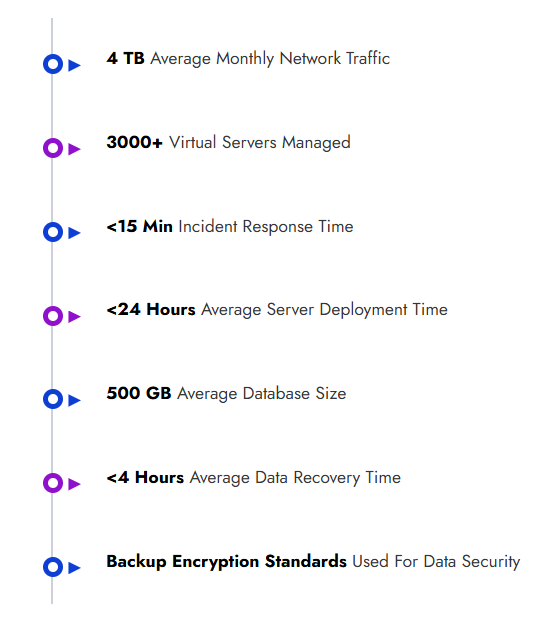Scaling New Heights: The Evolutionary Role of Infrastructure Management Services
Indeed, business today more than ever depend on a technological platform to sustain its efficiency and relevance in today’s society. Embedded in the core of 21st century technological success of any organization is the issue of infrastructure management services.
These services make certain that all the core infrastructure — and hardware and software, networks, and storage — are working as they should for a connected business to flourish.

What Are Infrastructure Management Services?
Infrastructures management services is a concept covering an array of solution focused on managing various structures in an organization IT framework. This involves responsibilities such as the overs… see more See Less Managing servers, data center, cloud, network as well as end user devices. Through these services, business organizations are able to optimize process, management time, increase availability and security.
From a start-up company that has outgrown its infancy and seeking to grow at a faster rate, to an already established and large enterprise which is looking for ways of improving some of its operational processes, infrastructure management services offer the level of flexibility and reliability that is essential in today’s every-changing business world.
Why Are Infrastructure Management Services Essential?
Improved Efficiency: Suboptimal IT resource usage means that there are certain bottlenecks hindering the work process.
Cost Savings: Reducing the cost of overhead is made possible through outsourcing or automation of infrastructure management.
Enhanced Security: Processing cyber threats more often, extensive imminent imprint infrastructure management services protect materials and structures.
Scalability: Such services help organizations to respond effectively to such dynamics, such as the growth of activities or the incorporation of technology.

Key Components of Infrastructure Management Services
Network Management: Sustains reliable articulation, co-ordination and efficacy of network systems.
Server Management: Ensures that flaws affecting the server and the resultant outages do not happen and rather enhance the server’s uptime.
Storage Management: Responsible for the implementation and control of data storage means, their availability and data quality.
Cloud Infrastructure Management: Promotes ownership of cloud platforms for the firm as a means of being more flexible and economically viable.
IT Security Management: Carries out a process of protection of infrastructure against threats and risks.
The Future of Infrastructure Management Services
The need for cutting edge infrastructure management services are set to remain high as more business embrace digitization. Further, new trends like artificial intelligence and machine learning, edge computing, and the trend of hybrid cloud are further changing the paradigm that has a potential of reaching new efficiency levels of facility infrastructure solutions.
That is why the proper investment in infrastructure management services is not only a protection against staying in a state of stagnation but also opens new opportunities for further development.

Final Thoughts
In conclusion, IMS is not a backroom function, certainly not a nice-to-have option anymore but the vital key needed to penetrate through the tough competition in the world where only the future ready organization survives. If your organization has not yet considered these services, it is high time they did.
FAQS
What are infrastructure management services?
Infra management service covers the practical aspects of operating IT related systems and communications along with data centers.
What is an example of infrastructure management?
An example in the context of Infrastructure management is maintaining and supervision of servers, networks, and cloud platforms, to rank among others.